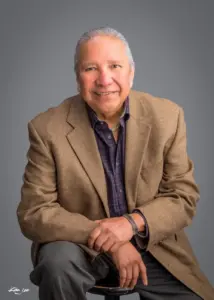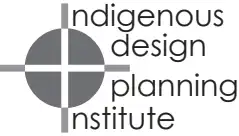Indigenous Public Interest Design Speakers
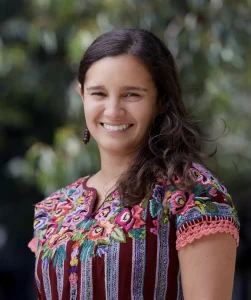
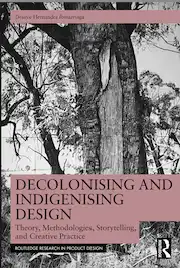
Dr. Desireé Ibinarriaga
Lecturer, Monash Art Design and Architecture
Dr Desiree Ibinarriaga is an Indigenous Mexican woman with Mayan, Nahua, Basque and Spanish heritage. Desiree is an educator, researcher, creative practitioner, collaborative and social design maker and thinker. She is Lecturer at Monash Art Design and Architecture, and Coordinator for Indigenous Higher Degrees by Research being part of Wominjeka Djeembana Indigenous Research Lab.
Desiree is a passionate creative practitioner, designer, researcher, educator and traveller. She has over 16 years of experience in the design field, across diverse disciplines, such as furniture, interior, social, collaborative, decolonising and Indigenous design. Desiree’s work focuses on Indigenous peoples’ building of capacity and better ways of partnership and communication between Indigenous and non-Indigenous people through design, by recognising the relationality between people and environment while acknowledging the world as a unit. Her teaching practice encourages students to develop understanding of Indigenous methodologies and their own cultural identity through a collaborative design practice.
Since 2012 she has collaborated with diverse Indigenous communities, organisations and universities in Mexico, Australia, Japan, Canada and Taiwan. She wrote the book Decolonising and Indigenising Design: Theory, Methodologies, Storytelling, and Creative Practice. Taylor & Francis, 2025.
She created the Critical Co-design methodology which is an Indigenous methodology for respectfully collaborating with Indigenous peoples, acknowledging the interconnection between relationality, Place, identity (positionality) and methodology in the field of co-design. The methodology encourages the collaboration between diverse Indigenous and non-Indigenous people while privileging Indigenous knowledges enhancing biocultural diversity conservation and regeneration towards collaborative resilience, cultural identity pride and sustainability.
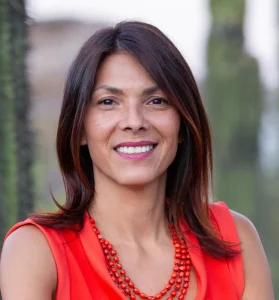
Wanda Dalla Costa, AIA, FRAIC, LEED AP
(ᓀᐦᐃᓇᐤ | Saddle Lake Cree Nation)
Principal at Tawaw Architecture Collective
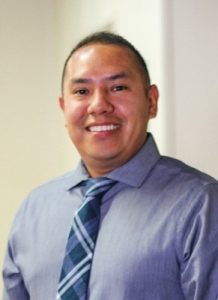
Theodore Edaakie, AIA, NCARB, AICAE
(Pueblo of Isleta)
Architect at Studio Southwest Architects
Theodore Edaakie, a tribal member of Isleta Pueblo, is a registered architect focusing on community-oriented projects including planning, education, public/civic, and governmental projects. With over 12 years of extensive professional experience, Theodore Edaakie has dedicated his career to working with a wide array of tribal communities throughout the United States. During his architectural education at the University of New Mexico, Theo’s research and studio design projects were influenced by his understanding of underserved communities, integrating meaningful cultural context, and often considered the potential impact he could make when he could eventually become his tribe’s first licensed architect. Theo actively supports indigenous professionals through various board and committee appointments, including the American Indian Council of Architects and Engineers (AICAE), National Council of Architectural Registration Boards (NCARB), and local chapter of the American Institute of Architects.
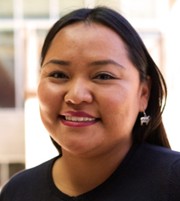
Michaela Shirley, MCRP
(Diné | Navajo Nation)
Michaela Paulette Shirley (Diné), MCRP, identifies with the Water Edge and Bitter Water clans, with her maternal grandfather from the Salt clan and her paternal grandfather from the Coyote Pass clan. She was raised in Kin Dah Lichii in northeastern Arizona on the Navajo reservation. With over ten years of experience in Indigenous planning, community development, community engagement, qualitative research, conference planning, and technical assistance training and workshops, she is now serving as the KSU Tribal TAB Program Manager. Currently, Michaela is pursuing a PhD in the UNM American Studies Department. She has a bachelor’s in urban planning from Arizona State University and a master’s in community and regional planning from the University of New Mexico. Her research interests include community development, youth engagement, community-school relationships, and Indigenous planning, particularly within Navajo studies.
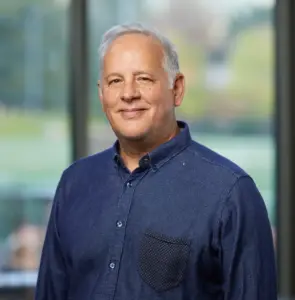
Sergio Palleroni
Portland State University School of Architecture
Sergio Palleroni is a faculty member in the School of Architecture and the Director and Co-founder of the Center for Public Interest Design (CPID) at Portland State University.
Professor Palleroni’s research and fieldwork for more than four decades has been in the development and implementation of practices, protocols and methods of public interest design practices that have the potential improve the lives of communities worldwide typically underserved by architecture.
In 1988, to serve the needs of these communities he co-founded an academic outreach program that would later become the BaSiC Initiative (https://www.spatialagency.net/database/basic.initiative), a service-learning fieldwork program focused on advancing design-build pedagogy as a collaborative model and framework with communities in need for social impact and systemic change. This is reflected in BaSiC projects and more recent work through the Center for Public Interest Design (http://www.centerforpublicinterestdesign.org), which are expanding the engagement opportunities, skill, and capacity of students and professionals in the architecture and design fields to engage the complex needs of communities in the U.S. and abroad.
In service of addressing this need, he helped create the Graduate Certificate in Public Interest Design at PSU in 2012, the first public interest design degree in the Americas. He is also Co-founder of the American Indian Housing Initiative, Yaqui Housing Initiative, and asset based community design based housing programs in collaboration with First Nations in the U.S. and abroad as well.
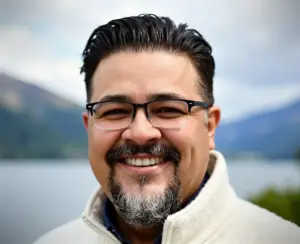
Scott Moore y Medina
President, Design Corps; EAPC Architects Engineers; University of Oklahoma
Scott Moore y Medina (Mestizo) is an award-winning designer, architect, grant-writer, community builder, and thought leader based out of Tulsa, OK. An entrepreneur of multiple decades, he collaborates to find place-based solutions to empower cultural communities, including Indigenous/Tribal nations, and others with unique stories to express who may be challenged by lack of advocacy, limited resources, disabilities, or injustice. Much of this work focuses on impacting the overall health, well-being and self-sufficiency of clients and community, as expressed through understanding the social, economic, environmental, and cultural interdependencies. Scott is keenly interested in the illumination of unique opportunities through meaningful collaboration to support the sustainability of people, place and planet – now and in the future. In his work, Scott has led and coordinated several sustainable planning projects and designed healthy, high performance buildings in North America. He brings efficient, affordable, replicable, and culturally relevant designs to life while leading game-changing projects that improve lives and support resilient economies.
Ted Jojola, PhD
Director, Indigenous Design + Planning Institute, School of Architecture + Planning, University of New Mexico
Theodore (Ted) Jojola, PhD, is the founder and Director of the Indigenous Design + Planning Institute, School of Architecture + Planning, University of New Mexico (UNM). iD+Pi works with tribal communities throughout the SW region as well as internationally by facilitating culturally informed approaches to community development. He is an enrolled member of the Pueblo of Isleta.
He is an emeritus Distinguished Professor and Regents’ Professor in the UNM Community & Regional Planning Department retiring in 2025. From 2008-2010, he was Visiting Distinguished Professor at Arizona State University where he was a member of the faculty of the School Geographic Sciences and Planning. In 2023, he was a Visiting Indigenous Scholar at the Department of Environmental and Urban Change, York University as well as the Indigenous Resilience Institute, University of Arizona. He was Director of Native American Studies at UNM from 1980-1996, and established the interdisciplinary undergraduate degree program in Native Studies. In 2015, he helped establish a Graduate Concentration in Indigenous Planning, the only one in the nation.
He is actively involved in major research projects on Indian education, Indigenous community development and architecture. He is coeditor of two books—The Native American Philosophy of V.F. Cordova entitled How It Is (U. of Arizona Press, 2007) and Reclaiming Indigenous Planning (McGill-Queens University Press, 2013). A third book is in the works, Contemporary Indigenous Architecture: Local Traditions, Global Winds (working title, UNM Press). In addition, he has published numerous articles and chapters on topics relating to indigenous design & planning, stereotyping and economic development. He also has a limited podcast series entitled PlaceKnowing.
More information on iD+Pi is available on its website: idpi.unm.edu
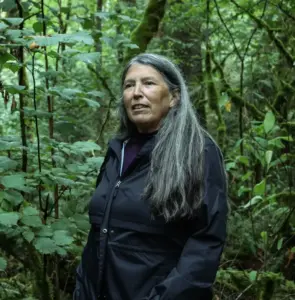
Judy BlueHorse Skelton
(Nez Perce/Cherokee)
Associate Professor (Retired), Indigenous Nations Studies, Portland State University
Judy BlueHorse Skelton, (Nez Perce/Cherokee), Associate Professor (retired), Indigenous Nations Studies at Portland State University, developed and teaches courses in the Indigenous Traditional Ecological and Cultural Knowledge (ITECK) Certificate Program, including Indigenous Ecological Healing Practices, Indigenous Leadership for Sustainable Futures, Cultural Ecology: Indigenous Science, and Indigenous Gardens and Food Justice. She’s worked with federal, state and local governments, Native organizations and tribes throughout the Northwest for more than 30 years, conducting cultural activities and research to reclaim the urban forest for food, medicine, ceremony, and healthy lifeways, integrating ITECK practices with Indigenous community and student-centered projects on urban/regional sites.
Judy has advised on PSU’s Native American Student and Community Center, the Vernier Science Center, the Native Gathering Gardens at Cully Park, and most recently the Center for Tribal Nations in the OMSI District and the Oak Savanna ITECK Center.
Through these relationships, Judy has fostered the creation of a unique space for teaching and practicing ITECK at PSU with the Oak Savanna ITECK Center, engaging students, partners and Indigenous community in collaborative projects across the region, including camas and wapato restoration, annual salmon bakes, seasonal seed-scattering and land blessings, land toxicology testing, and work at natural areas to harvest culturally significant plants and assist in land reclamation practices – providing real-world experiences that can be life changing, to heal the Land and heal the People.
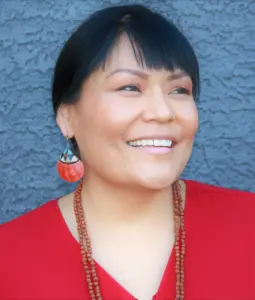
Elisha V. Charley
(Nihok’aa Diyin Dine’e)
Clinical Professor, Herberger Institute for Design and the Arts, Arizona State University
Elisha V. Charley, a Nihok’aa Diyin Dine’e (holy surface people), grew up in Dennehotso, AZ, in the northern region of the Navajo Nation. Her clans are the Folded Arms People clan, born for the Start of the Red Streak people clan, her maternal grandfather is from the Water Edge People clan, and her paternal grandfather is from the Red Running into the Water People clan. Charley’s research is deeply rooted in Diné place-based knowledge and guided by Indigenous Planning frameworks. She centers dialogic practices that advocate for Navajo housing data justice and critically examine Navajo land use conditions. She explores Indigenous-led participatory housing development models and incremental approaches to homebuilding within the Navajo Nation. She is currently engaged in her doctoral studies in Urban Planning at Arizona State University’s (ASU) School of Geographical Sciences and Urban Planning. Her research is dedicated to advancing scholarship in Native American housing and land use. In addition, she holds the position of Clinical Professor at The Design School at ASU in Tempe, Arizona.
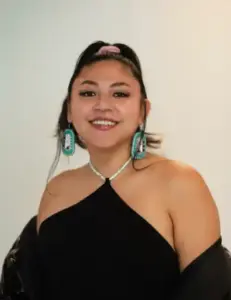
Souksavanh T. Keovorabouth, Diné, PhD
Assistant Professor, Northern Arizona University
Souksavanh T. Keovorabouth, Diné, PhD (She/Her) is Diné and Second-Generation Laotian, Queer, Trans, and Two-Spirit, and an Assistant Professor at Northern Arizona University in Women and Gender Studies and Applied Indigenous Studies. She is originally from Chinle, Arizona on Dinétah (Navajo Nation), but were born and raised in Phoenix, Arizona, due to displacement, relocation, and removal tactics. Her research focus is primarily on Indigenous Queer, Trans, and Two-Spirit Studies, Gender construction, urban diaspora, Indigenous masculinities, and Missing and Murdered Indigenous Relatives.
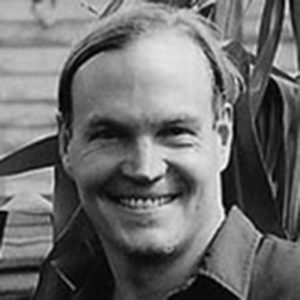
Bryan Bell
Founder and Executive Director, Design Corps
Bryan Bell has been involved in Public Interest Design since his founding of Design Corps, a not for profit service organization in 1991. His work includes co-editing five publications, co-hosting twelve Structures for Inclusion conferences, and co-organizing thirty-three Public Interest Design Institutes on this subject. He co-received the Latrobe Research Award from the Fellows of the American Institute of Architects which resulted in the report titled Wisdom from the Field: Public Interest Practices in Architecture. He held a Loeb Fellowship at Harvard for the study of Public Interest Design, and has taught this subject at North Carolina State University College of Design for ten years as a full Professor.


